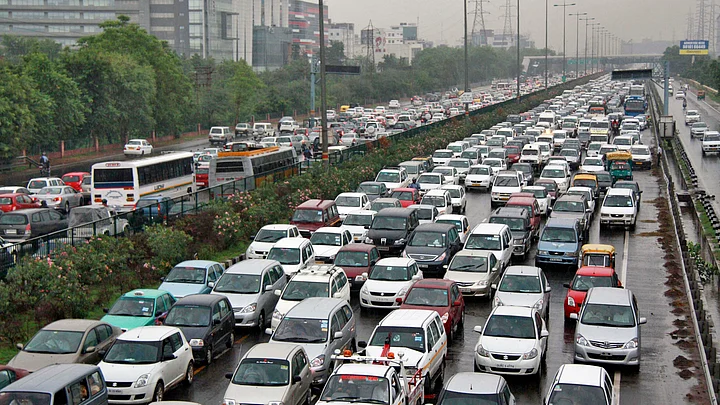Finally, the penalties for disobeying traffic laws have become quite hefty in India, but will it make a difference to the way India drives? The Union Cabinet on Monday, 24 June, approved the Motor Vehicles (Amendment) Bill that proposes hefty penalties for violation of traffic laws.
This has been a long time coming. This 2017 Bill, which was pending for approval in the Rajya Sabha, lapsed after the term of the 16th Lok Sabha ended. According to a PTI report, it has now been cleared by the Cabinet and will be presented to parliament in the current session. It will then be notified to be enforced by authorities.
What are the key takeaways from this bill, which will likely discourage errant drivers?
Want to listen to this story instead? Click below:
Key Takeaways
The Motor Vehicles (Amendment) Bill has made some significant changes to the Motor Vehicles Act of 1988 (which in itself is a revised one). Under the new Bill, as seen in the chart above, the fines for drunk driving or driving after being disqualified have been sharply increased from Rs 500 to Rs 10,000.
In addition, not giving way to emergency service vehicles such as ambulances, fire services or police vehicles will entail a stiff penalty of Rs 10,000. This provision was not there in the earlier Act.
Fines for speeding have also been increased sharply from Rs 500 per offence to Rs 5,000. So have fines for not wearing a seatbelt or helmet, which are now Rs 1,000 each.
What Else Is New?
Besides the revised fines, the Bill also documents changes in the way driving licences are issued. The use of Aadhar number is now compulsory for applying for driving licences and vehicle registrations.
Also, driving licences in India were earlier valid for 20 years or until the person turns 50 years old. Now, driving licences will be valid for only 10 years for those between ages 30 and 50. If someone gets a licence between the age of 50 and 55, it will be valid till age 60, while for those who renew their licences after age 55, validity of the renewed licence will be for only 5 years.
Insurance payouts limits on third party insurance have been removed. This has already reflected in the steep hike in third party insurance premium too, making the purchase of new vehicles more expensive.
Manufacturers can no longer pass off substandard or defective vehicles to consumers. The Bill provides for mandatory recall of vehicles, if it is proven to be a danger to other road users.
Manufacturers will have to reimburse buyers with the full cost of the vehicle, provide a replacement and could also pay fines of up to Rs 500 crore. At the moment, recalls are only voluntary for vehicle manufacturers.
In addition, the new Bill now recognises taxi aggregators such as Ola and Uber and imposes hefty fines if they are found to be violating norms of operation. This provision wasn’t there in the earlier Act.
What’s Next?
The Motor Vehicles (Amendment) Bill will be presented to parliament in this 2019 monsoon session. It will then be notified to authorities.
Meanwhile, the Ministry of Road Transport and Highways has asked for a standardisation of driving licence formats across the country. These will all be linked online in its “Sarathi” database, which will store information about the licence holder and challans issued. It already has about 15 crore driving licence records available.
The government has also started issuing e-challans for violations, which will directly reach owners of the vehicles found violating rules. These fines can also be paid online on the government’s Parivahan website.
However, not everyone is convinced of its implementation.
While these changes should bring down the scope for corruption in the system, it will also make it increasingly difficult for violators to get away. However, it will take some time for the entire system to be fully operational. And plug all the loopholes.
